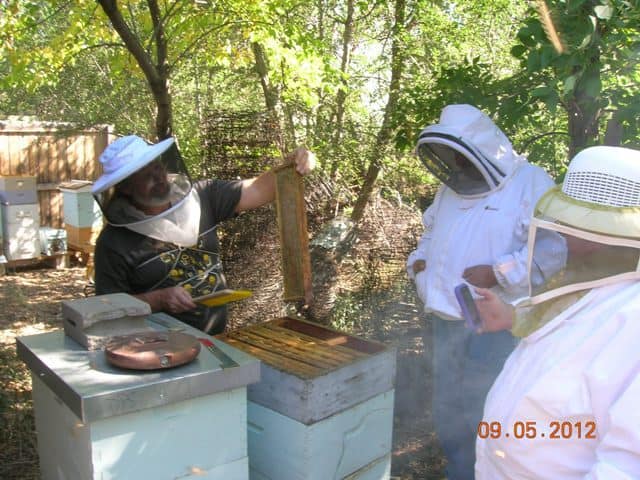Specialists at the American College of Chest Physicians report that cough syrups don’t work. If anything, these products may have a negative impact on your health. Popular cough syrups include expectorants to increase mucus flow and decongestants to decrease mucus flow. They also include dextromethorphan (DM) to suppress a cough by shutting down the reflex for a short time, and antihistamines to block allergic responses. So there you have it. To help a cough, you should increase your mucus flow, or decrease it. You should suppress your cough reflex—and/or your immune system—ignoring the fact that this is your body’s perfectly natural response to an ailment. And you should do this all with drugs, of course, brought to you by our oh-so-trustworthy (sarcasm intended) global pharmaceutical companies.
Or you can take a different approach. When it comes to a cough, there is abundant anecdotal evidence to indicate that honey is just what your body needs. Though this is an age-old folk remedy, it’s never been scientifically tested—for the simple reason that there’s no money in it. But does that mean it doesn’t work? No. Honey does work, by boosting your immune system. My friend Shannon is a case in point:
I bought my first jar of local honey because I heard that it will help with seasonal allergies and general health. Let me tell you, I tested that statement to the max this summer when I caught whooping cough! Honey was the only thing that calmed my cough and did so within seconds! I was so thankful for the medicinal and calming effects that it had for me and continues to have. I encourage everyone to support your local honeybees!
I can easily find anecdotal evidence and remedies on the Internet showing that honey, taken with a wide variety of ingredients, is one of the best ways to calm a cough. Here’s one suggestion for licorice with honey. And it’s not uncommon to hear people advise the ever popular lemon with honey. You might also consider honey lemon ginger tea. You can keep it simple with hot water and honey or, as an alternative, brandy or whiskey mixed with honey. Oh, by the way, let’s not forget garlic. Like honey, this ingredient contains antibiotic and antiviral properties, which makes this recipe for garlic honey lemon tea a double threat. The anecdotal evidence couldn’t be more clear. There is a long and varied list of ingredients that, when taken with honey, will help your cough far better than any drug—including dark ground coffee, black pepper, and thyme.
Unfortunately, many of these recipes have you mixing your honey into hot or boiling water. But because of its living enzymes, raw honey is best. For the record, honey can only be labeled raw if it’s never been heated above 118-degrees Fahrenheit. Raw honey is available from your local beekeeper, but you’re less likely to find it at the grocery store. However, the extra effort is worth it. Honey in its raw form has the best shot at giving your immune system a boost, because it preserves the probiotic nature of the honeybees’ effort. Though adding honey to boiling water is still beneficial, it’s less so than if you’d left it unheated. So if you’re trying to gain a health benefit from that local raw honey you paid a premium price for, heating it up isn’t the way to go.
The health benefits of honey are extensively documented in The Honey Revolution by Dr. Ron Fessenden, MD, MPH. On page 146, you’ll find this key passage:
In a well-controlled, double-blinded study conducted by Dr. Ian Paul and his associates at the Penn State University College of Medicine, honey was found to be most effective in reducing cough severity and frequency in young children and in improving both child and parent sleep quality when compared to dextromethorphan (DM), the most common over-the-counter antitussive. Noting the antioxidant and antimicrobial effects of honey as possible mechanisms, the study concludes that honey “may be a preferable treatment for the cough and sleep difficulty associated with childhood upper respiratory tract infection.”
Whether you’re a child or an adult, whether you take your honey by the spoonful or mix it with something else, you’ll cough less and sleep more if you stick to nature’s preferred cough suppressant, honey.
Photo credit: Donald Studinski


